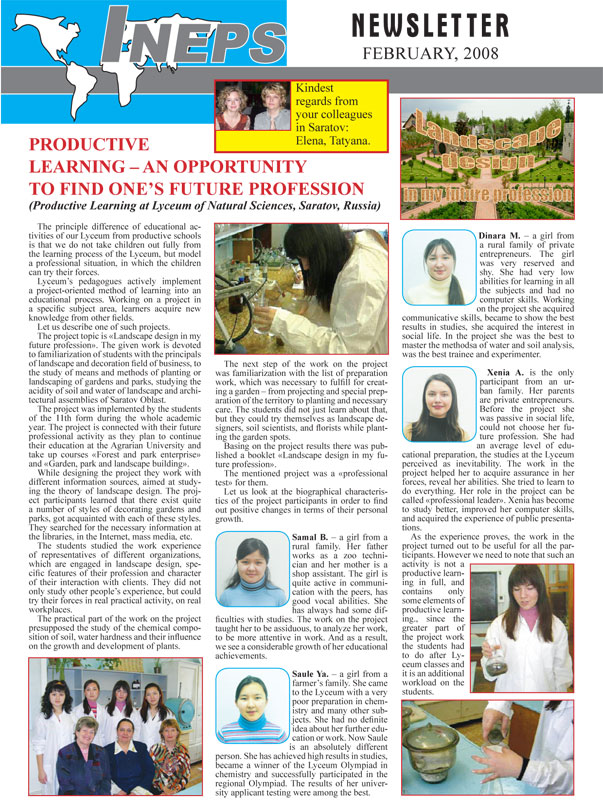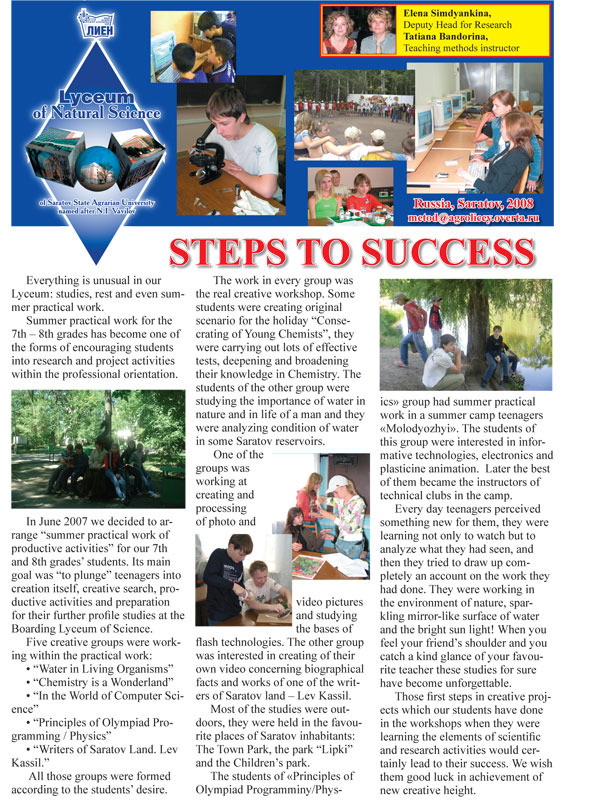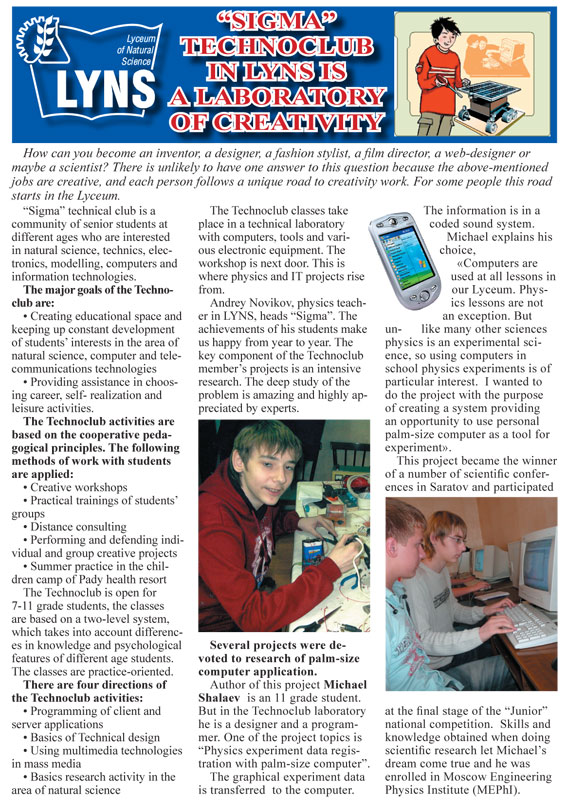INEPS
Organization of productive training in Russia and abroad


School education is currently faced with the need to initiate its development via innovative activities. The term “productive learning” reflects the idea of active and independent learning activity of a student. In world practice, productive learning is understood as a new model of the educational process for Middle School and High School. This model is focused on the practical development of the interests of teens in real studying and combined with social practice.
There are no productive only schools that implement the ideas of freely organized education in Russia. There are some attempts to build variable systems in the structure of traditional basic education.
Having studied the experience of productive learning in European countries, the Institute of Productive Learning was established in St. Petersburg, and later the Institute of Russian Academy Education Innovations created productive learning laboratories in various regions of Russia.
Since 2005, LIEN has been an active member of the international network of productive schools INEPS. LIEN employees took part in the XV-XVII International Congresses INEPS.
Lien is a school productive education.

LIEN teachers work on creating a holistic educational technology that allows it to apply the student-centered approach to learning, choose educational trajectory for each student of the Lyceum according to his or her inclinations and abilities, and correct the development of student creative thinking at various stages of study.
 The participation of the LIEN team in the XVII Congress of the International Network of Productive Schools (INEPS) allowed us to realize that productive learning can be one of the alternative forms of education for children with any level of abilities today.
The participation of the LIEN team in the XVII Congress of the International Network of Productive Schools (INEPS) allowed us to realize that productive learning can be one of the alternative forms of education for children with any level of abilities today.
The participation of the LIEN team in the XVII Congress of the International Network of Productive Schools (INEPS) allowed us to realize that productive learning can be one of the alternative forms of education for children with any level of abilities today.
A necessary condition for the implementation of productive learning is the formation of project thinking in students.
Therefore, LIEN teachers actively implement the project method of teaching in the educational process. Working on projects in a specific area of knowledge, students also receive new knowledge from other educational areas. The implementation of metadisciplinary, integrated projects allows us to study each subject not autonomously, but as one of the necessary links to make a holistic perception of the world.
Taking into account the growing interest of teachers and students in project activities, the lyceum has developed an elective course for students, called Technology of Project Activities. The program was approved by the Ministry of Education of the Saratov Region. Its main goal is to help students to build their creative potential while working on real projects.
The course program consists of nine separate modules:
- Introduction to the project method.
- Methods and techniques for working with information.
- Language design of the project.
- Sociological research.
- Statistical data processing.
- Fundamentals of natural science experiment.
- Multimedia presentation as a form of presentation of project results.
- Methods and techniques of presentation and self-presentation.
- Conducting a constructive dialogue.
All modules are consistent and logically complete.
The project activity contributes to the formation and strengthening of new relations between teacher and student. The role of the teacher becomes completely different. The teacher with this approach acts as a consultant or partner. He or she does not lead the student in study, but accompanies students. For a number of years, the scientific community of students has been functioning in the Lyceum, whose members are engaged in individual and group research activities under the guidance of specialized teachers.
Personal educational product as the result of a creative, productive cognitive activity is the creation of certain spiritual products (research, essay, etc.) and at the same time it is acquisition experience and development of personal methods of cognition.







